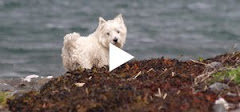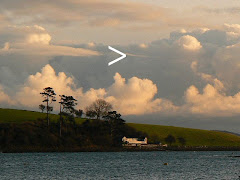Quilchena Ranch
(the pass is above and behind the barns)
I just knew that, sooner or later, the internet would come in handy.
Yesterday morning I received an email with the subject, 'A summer in Quilchena', and my heart missed a beat.
Quilchena is the ranch in Canada where I spent a life-changing gap year - heavens - thirty-four years ago.
Before I tell you who the email was from, I want to say that his name took me in my mind's eye to a pass, a steep-sided, pine-fringed gap between a pair of rocky outcrops, where I sat on a horse looking out over the picture-perfect (in a Head 'em off at the pass kind of way) Nicola Valley, in the ranching country between the Rockies and the Coast Mountains of beautiful British Columbia.
Five or six hours earlier, I had been unsaddling and rubbing down the dude horses in a corral behind the horse barn - I was the dude wrangler for a month or two during the summer - when Jonathan Smyth appeared at the rail and asked, in mild distress, if I could help him out.
As I remember it, it was a Sunday - closing day at the ranch's general store where Jonathan had just taken a summer job - and the two of us has ridden out early that morning so that he could take his first look at Quilchena's 32,000 acres. Among his responsibilities was the safe keeping of the key to the store's coke machine, and he had had it in his pocket when we crossed the river and rode up and out on two of the ranch's most reliable saddle horses - he rode a roan called Bush and I was on Old Bull, a buckskin whose temperament was as even as his gait. We rode as far as the branding corrals, moved a few cattle just for fun and saw, as I recall, two black bears moving through the trees in the distance.
When we got back, I headed straight out again with a party of hotel guests, and it was their horses that I was cooling down when Jonathan appeared, asking for help. He had lost the key to the coke machine somewhere on our meandering trek across the ranch, and having just started on the job, did not relish the thought of telling his boss, Elmer O'Hanley, when he started back on Monday.
So, we headed out again - my third ride of the day - in the forlorn hope that one of us might spot the reflection of sunlight on steel somewhere in the browning grass of the ranch's summer pasture. We tried to retrace our steps exactly, but after several hours we had gone full circle and found ourselves sitting the horses at the above-mentioned pass, looking down on the barns, the corrals, the bunkhouses, and in the far distance, the dark, sinewy length of Lake Nicola. We admitted defeat but agreed it had been worth a try, and Jonathan rehearsed his speech for the following morning. I didn't really know why he was so worried, because Elmer was no ogre - he was as kind and pleasant a man as you could wish to meet. Perhaps, now I think about it, that's why Jonathan felt so badly.
We were about to move on when I looked by force of habit at the ground, and there, an inch from Old Bull's left foreleg, was the key. Had I been the ol' Montana cowboy I aspired to be, I would have said, 'Well I'll be a sonofagun', but I did take the opportunity to say what all the hands at Quilchena used to say to make a point: 'Holy shit!'
Jonathan: wherever you are, if by some chance you find yourself reading this post, I'm wondering - have the fates continued to smile on you in the intervening years?
Which drags me back to the point, and yesterday's unexpected email. It was from Brendan O'Hanley, Elmer's then sixteen-year-old son, who had been at his computer at four in the morning in Edmonton, Alberta, nursing a cold, and had thought, 'I wonder what would pop up if I googled that Irish guy from the summer of 1976?'
































.jpg)

.jpg)


.jpg)

.jpg)
.jpg)
.jpg)














